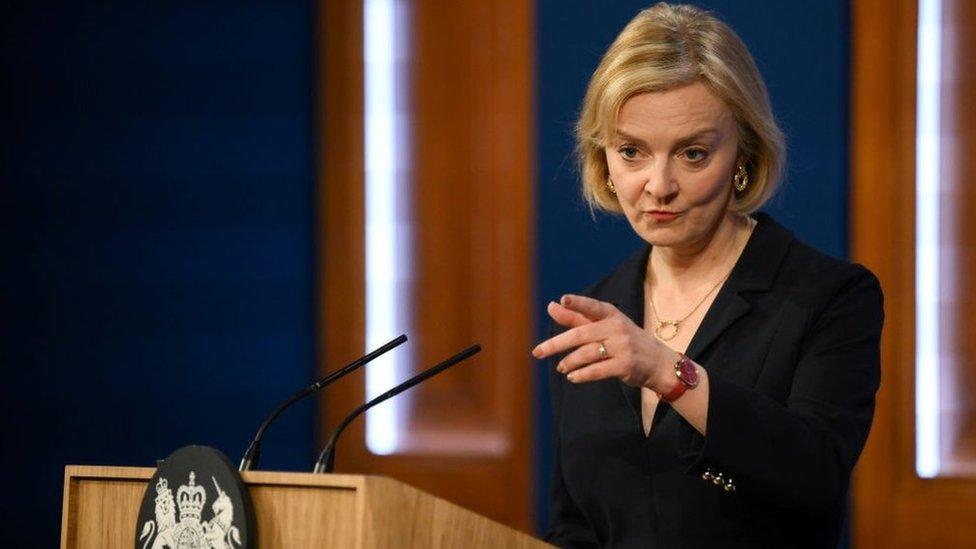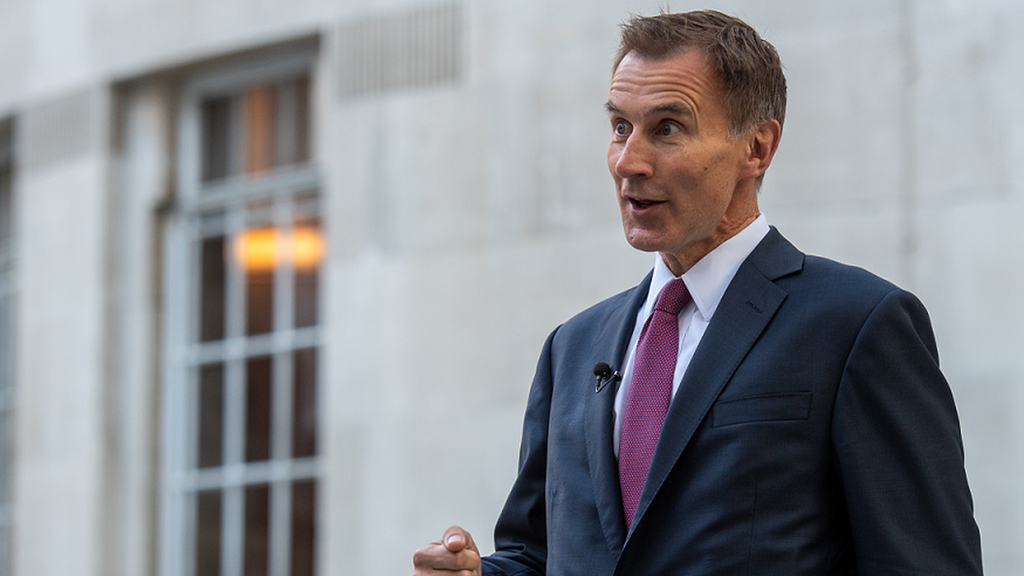Jeremy Hunt buries Truss’s economic experiment
- Published

Having just conducted what turned out to be the last interview with former Chancellor Kwasi Kwarteng while across the pond, it certainly seemed like the economic experiment known as "Trussonomics" was dead - even if Liz Truss remained prime minister.
I had not expected the new Chancellor Jeremy Hunt to seal the coffin and publicly bury that approach to economics within 24 hours. But that is what happened in his interview with Laura Kuenssberg today.
And for good measure, former Health Secretary Matt Hancock read out a eulogy, of sorts.
"There are people who, in good faith, made arguments about libertarian economics… We've tested those arguments, it is now self-evident for a generation, it didn't work", he said.
Jeremy Hunt's acknowledgement of the "mistake" of side-lining the independent Office for Budget Responsibility (OBR), revealed by the BBC before the mini-budget, promise of "very difficult decisions" - and refusal to take any Truss tax cuts "off the table" - are aimed squarely at unimpressed markets.
In a few hours, the markets for British government borrowing reopen, but without the support of emergency help from the Bank of England.
But the market can be a capricious friend as well as a difficult enemy.
The economic message may be "credible", but questions remain as to the political sustainability: A prime minister without her programme, a cabinet now obliged to keep its lips shut over doubts about the OBR or Institute for Fiscal Studies, and a defence secretary having to contemplate how realistic the 3% of GDP promise is.
Truss-supporting MPs are privately concerned that all of this has been driven by pessimistic borrowing forecasts. Is this an entity with enough political capital and unity to push through significant cuts and tax rises, at least partly the result of previous mistakes, that they do not agree about?
And as this happens, businesses, rather in tune with public opinion, are no longer shy about criticising the government.
Many kept their counsel as the government pursued a form of Brexit that made exports more difficult and hit inward investment. The latest bout of economic and political instability has led to open conversations about how "investible" the UK is at this precise moment.
The chairman of Tesco, the supermarket historically most shy of saying anything about politics, told Laura Kuenssberg not only that the Conservatives "did not have a growth plan", but that Labour had the start of one with "many attractive ideas" and that "there's only one team in the field".
This reflects more general grumbling: Who is in charge? What is the policy? Is there macroeconomic stability? What is sterling worth?
These are active questions in boardrooms, and with an apparent swing in public opinion, and big stakes, business leaders feel empowered to say what they think. Buckle up.
Related topics
- Published16 October 2022

- Published14 October 2022
